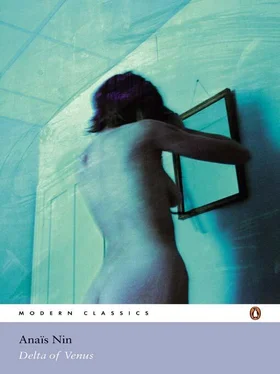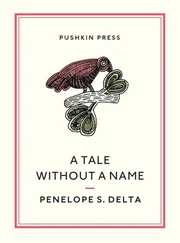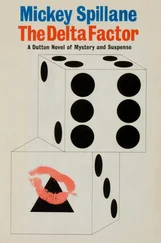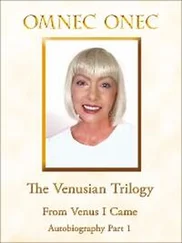And then one day, about two months after their liaison, she went to him and when he took her in his arms she felt no desire. He did not seem to be the same man. As he stood in front of her she coldly observed his elegance and his ordinariness. He looked like any elegant Frenchman one could see walking down the Champs Elysées, or at opening nights, or at the races.
But what had changed him in her eyes? Why did she not feel this great intoxication she felt ordinarily in his presence? There was something so usual now about him. So like any other man. So unlike the Arab. His smile seemed less brilliant, his voice less colorful. Suddenly she fell into his arms and tried to smell his hair. She cried out, ‘Your perfume, you have no perfume on!’
‘It’s finished,’ said the Arab Frenchman. ‘And I cannot get any like it. But why should that upset you so?’
Linda tried to recapture the mood he threw her into. She felt her body cold. She pretended. She closed her eyes and she began to imagine. She was in Fez again, sitting in a garden. The Arab was sitting at her side, on a low, soft couch. He had thrown her back on the couch and kissed her while the little water fountain sang in her ears, and the familiar perfume burned in an incense holder at her side. But, no. The fantasy was broken. There was no incense. The place smelled like a French apartment. The man at her side was a stranger. He was deprived of his magic that made her desire him. She never went to see him again.
Although Linda had not relished the adventure of the handkerchief, after a few months of not moving from her own sphere she became restless again.
She was haunted by memories, by stories she heard, by the feeling that everywhere around her men and women were enjoying sensual pleasure. She feared that now that she had ceased to enjoy her husband, her body was dying.
She remembered being sexually awakened by an accident at a very early age. Her mother had bought her panties that were too small for her and very tight between the legs. They had irritated her skin, and at night while falling asleep she had scratched herself. As she fell asleep, the scratching became softer and then she became aware that it was a pleasurable sensation. She continued to caress her skin and found that as her fingers came nearer the little place in the center, the pleasure increased. Under her fingers she felt a part which seemed to harden at her touch, and there found an even greater sensibility.
A few days later she was sent to confession. The priest sat at his chair and she was made to kneel at his feet. He was a Dominican and wore a long cord with a tassel which fell at his right side. As Linda leaned against his knees, she felt this tassel against her. The priest had a big warm voice which enveloped her, and he leaned down to talk to her. When she had finished with the ordinary sins – anger, lies and so on – she paused. Observing her hesitation, he began to whisper in a much lower tone, ‘Do you ever have impure dreams?’
‘What dreams, Father?’ she asked.
The hard tassel that she felt just at the sensitive place between her legs affected her like her fingers’ caresses of the nights before. She tried to move closer to it. She wanted to hear the voice of the priest, warm and suggestive, asking about the impure dreams. He said, ‘Do you ever have dreams of being kissed, or of kissing someone?’
‘No, Father.’
Now she felt that the tassel was infinitely more affecting than her fingers because, in some mysterious way or other, it was part of the priest’s warm voice and his words, like ‘kisses’. She pressed against him harder and looked at him.
He felt that she had something to confess, and asked, ‘Do you ever caress yourself?’
‘Caress myself how?’
The priest was about to dismiss the question, thinking his intuition had been an error, but the expression of her face confirmed his doubts.
‘Do you ever touch yourself with your hands?’
It was at this moment that Linda wanted so much to be able to make one movement of friction and once again reach that extreme, overwhelming pleasure she had discovered a few nights ago. But she was afraid the priest would become aware and repulse her and she would lose the sensation completely. She was determined to hold his attention, and began, ‘Father, it is true, I have something very terrible to confess. I scratched myself one night and then I caressed myself, and –’
‘My child, my child,’ said the priest, ‘you must stop this immediately. It is impure. It will ruin your life.’
‘Why is it impure?’ asked Linda, pressing against the tassel. Her excitement was rising. The priest leaned over so close that his lips almost touched her forehead. She was dizzy. He said, ‘Those are the caresses that only your husband can give you. If you do it and abuse them, you will grow weak, and no one will love you. How often have you done it?’
‘For three nights, Father. I have had dreams too.’
‘What sort of dreams?’
‘I have had dreams of someone touching me there.’
Every word she said increased her excitement, and with a pretense of guilt and shame she threw herself against the priest’s knees and bowed her head as if she would cry, but it was because the touch of the tassel had brought on the orgasm and she was shaking. The priest, thinking it was guilt and shame, took her in his arms, raised her from her kneeling position and comforted her.
Marcel came to the houseboat, his blue eyes full of surprise and wonder, full of reflections like the river. Hungry eyes, avid, naked. Over the innocent, absorbing glance fell savage eyebrows, wild like a bushman’s. The wildness was attenuated by the luminous brow and the silkiness of the hair. The skin was fragile too, the nose and mouth vulnerable, transparent, but again the peasant hands, like the eyebrows, asserted his strength.
In his talk it was the madness that predominated, his compulsion to analyze. Everything which befell him, everything which came into his hands, every hour of the day, was constantly commented upon, ripped apart. He could not kiss, desire, possess, enjoy, without immediate examination. He planned his moves before-hand with the help of astrology; he often met with the marvelous; he had a gift for evoking it. But no sooner had the marvelous befallen him than he grasped it with the violence of a man who was not sure of having seen it, lived it; and who longed to make it real.
I liked his pregnable self, sensitive and porous, just before he talked, when he seemed a very soft animal, or a very sensual one, when his malady was not perceptible. He seemed then without wounds, walking about with a heavy bag full of discoveries, notes, programs, new books, new talismans, new perfumes, photographs. He seemed then to be floating like the houseboat without moorings. He wandered, tramped, explored, visited the insane, cast horoscopes, gathered esoteric knowledge, collected plants, stones.
‘There is a perfection in everything that cannot be owned,’ he said. ‘I see it in fragments of cut marble, I see it in worn pieces of wood. There is a perfection in a woman’s body that can never be possessed, known completely, even in intercourse.’
He wore the flowing tie of the Bohemians of a hundred years ago, the cap of an apache, the striped trousers of the French bourgeois. Or he wore a black coat like a monk’s, the bow tie of the cheap actor of the provinces, or the scarf of the pimp, wrapped around the throat, a scarf of yellow or bull’s-blood red. Or he wore a suit given to him by a businessman, with the tie flaunted by the Parisian gangster or the hat worn on Sunday by the father of eleven children. He appeared in the black shirt of a conspirator, in the checkered shirt of a peasant from Bourgogne, in a workman’s suit of blue corduroy with wide baggy trousers. At times he let his beard grow and looked like Christ. At other times he shaved himself and looked like a Hungarian violinist from a traveling fair.
Читать дальше












